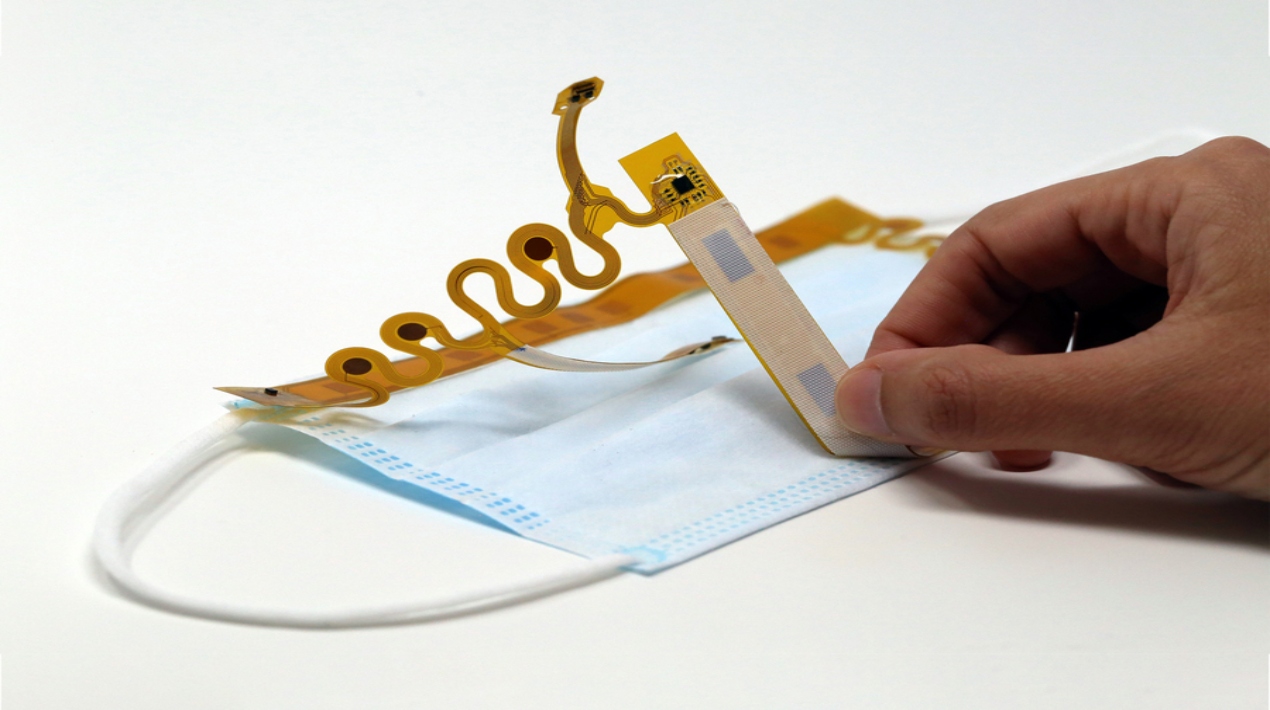
Wearing a mask can help prevent the spread of viruses, but the efficiency of the mask is dependent on how well it fits. There are currently no straightforward methods for measuring mask fit, but a novel sensor developed at the Massachusetts Institute of Technology (MIT) could make it much easier to assure a proper fit. The sensor, which detects physical contact between the mask and the wearer’s face, can be used with any type of mask.
The researchers used this sensor to compare the fit of surgical masks on male and female individuals and discovered that the masks fit women’s faces far less closely than men’s faces. The researchers expect that their sensor will help individuals locate better-fitting masks and that designers will be able to utilise it to develop masks that fit a wider range of facial shapes and sizes. The sensor can also track vital indications like breathing rate and temperature, as well as ambient variables like humidity.
The researchers began working on this project before the Covid-19 outbreak made mask-wearing prevalent. Their original plan was to employ sensors integrated into masks to assess the effectiveness of mask use in high-pollution locations. When the pandemic began, they recognised that such a sensor could have broader implications.
During the pandemic, there were so many kinds of masks that researchers thought this kind of sensor could help people find the mask that fits them best. At the moment, the only way to figure out how well a mask fits are to use a machine called a mask fit tester. This machine measures how well a mask fits by comparing the number of particles in the air inside and outside the face mask.
But this kind of machine is only found in specialised places like hospitals, where it is used to check how well a mask fits a health care worker. The MIT team wanted to make a mask-fitting tool that was easier to use and could be taken anywhere.
Researchers made what they call a “conformable multimodal sensor face mask” so that their sensors could be put into face masks (cMaSK). Sensors that measure different things are built into a flexible polymer frame that can be attached around the edges of any mask’s inside.
For measuring fit, the cMaSK has 17 sensors around the edge that measure capacitance. This lets the users know if the mask is touching the skin at each of those points. The cMaSK interface also has sensors that measure temperature, humidity, and air pressure, which can pick up on things like speaking and coughing. The device has an accelerometer that can tell if the person wearing it is moving around. All the sensors are made of polyimide, a biocompatible polymer that is used in medical implants like stents.
Using data collected by capacitance sensors, the researchers developed a machine-learning algorithm to determine the quality of mask fit for each participant in the trial. Due to differences in face shape and size, these measurements revealed that the mask fit women substantially less well than men.
The researchers hope that their findings will motivate mask makers to create masks that fit a variety of face shapes and sizes, particularly those of women. In addition, the researchers intend to return to their original plan of investigating the impacts of air pollution on outdoor workers.
















